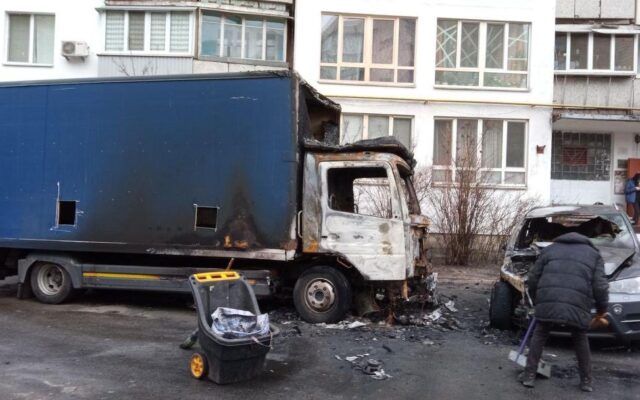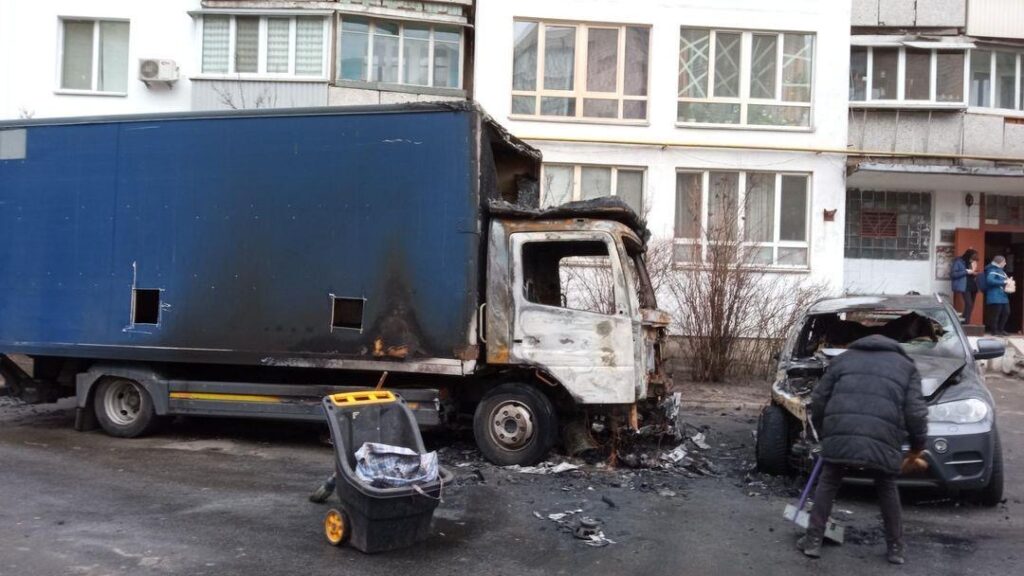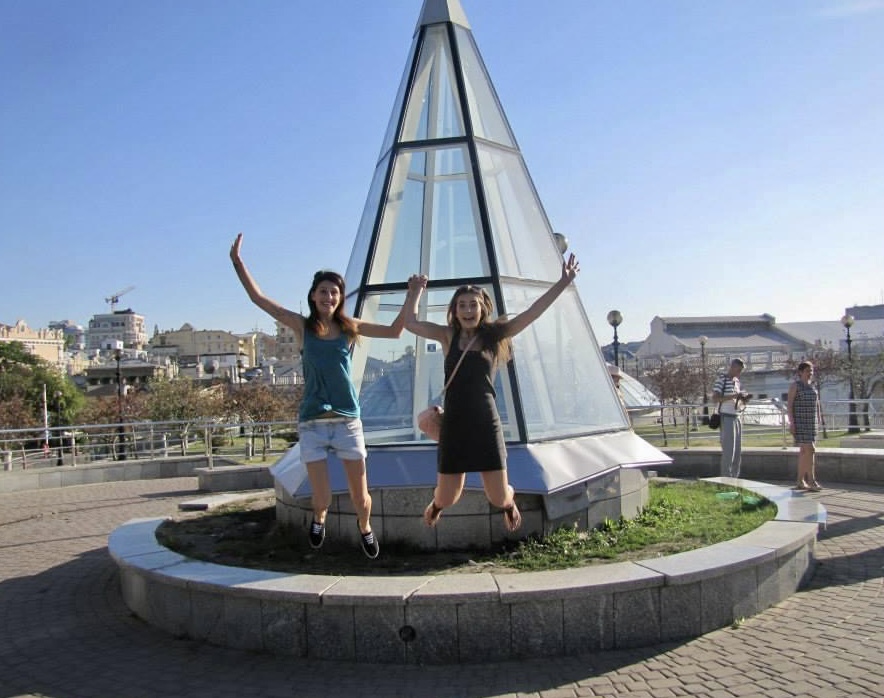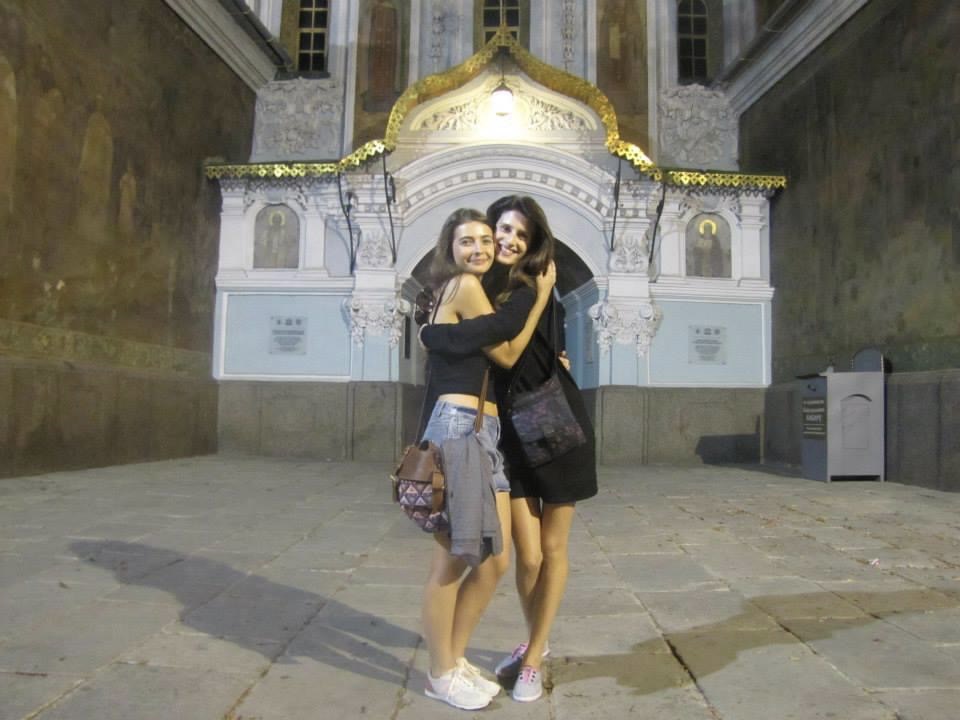
As my family in Ukraine braces for bombs, I watch in Maine and cling to hope
Are you from Ukraine or Russia, or do you have relatives and friends living there? Do you have a story to share? Write to us at news@bangordailynews.com.
I awoke Friday just after 3 a.m. and checked my phone for updates. A notification from my cousin, who lives in Kyiv, flashed on my screen. She’s following the Ukrainian government’s direction and sheltering at home with her husband and their 5-year-old son as Vladimir Putin’s bombs rain down on their city.
“We lived through the night, but what happens next is unknown,” she says.
I tell them to remain strong, that I’m sending support — not only my own, but support of friends, coworkers, even strangers on the internet who are thinking of Ukrainians as Russian forces have launched a full-scale war on the country known for its vast blue skies and golden wheat fields.
“A takeover is waiting for us,” she writes back. “I’m not afraid for myself. I just want peace for my child.”

Vehicles destroyed outside the apartment complex of Valerie Royzman’s relatives after overnight bombing in Kyiv.
My parents, Michael and Irena Royzman, wanted this same security for themselves and their children when they packed their lives into suitcases and left their mother country behind in August 1993. My family is from Znamenka, a city of about 21,000 in central Ukraine known for its railway station.
When my parents lived there, many people worked in repair yards and metalworking factories, as well as radio and military plants, but the government closed everything. People left in search of jobs elsewhere.
My parents, paternal grandmother Tatyana and my siblings — Kristina, 9, and Eugene, 12 — came to Toledo, Ohio, where my uncle and aunt had already settled and where I would be born four years later. They were part of a wave of refugees fleeing after the dissolution of the Soviet Union left their country in crisis, desperate to find its own footing.
The economy was failing, politics were in turmoil and the air they were inhaling hadn’t felt safe since the Chernobyl nuclear power station exploded in April 1986, blanketing the Soviet Union and much of Europe in a radioactive cloud.

Bangor Daily News reporter Valerie Royzman, right, and her cousin in Kyiv during the summer of 2015.
Since Russia’s attacks began Thursday morning, troops have advanced into more areas of the country and have been met with resistance from Ukrainian soldiers. Ukrainians have flooded subway stations in major cities, using them as bomb shelters. A children’s hospital in Dnipro, in eastern Ukraine, moved newborn infants from the neonatal intensive care unit to a makeshift bomb shelter on a lower level of the building. Thousands are crossing the border into Poland, including one of my cousins and her young daughter.
“I still think this is a dream,” my mother says. “It’s so scary.”
Growing up, I always felt like people had never even heard of Ukraine when I told them where my parents are from. Now everyone knows. People have asked, “How are you? How’s your family?”
As war has unfolded over the last several days, it seems impossible to see forward to the next minute. The relentless explosions of bombs and missles on the news form a dull roar, and it’s all that I can hear. I can’t comprehend how anxious and afraid everyone in Ukraine is feeling.

Bangor Daily News reporter Valerie Royzman, left, and her cousin in Kyiv during the summer of 2015.
As peace and windows shatter, I am trying really hard — despite the awful tightness in my chest — to remain hopeful.
How do you carry grief this heavy? How do you move freely in the world when your mother country is being torn to pieces? What can you do to make it easier on the people suffering there?
Another cousin sends several photographs of vehicles destroyed after overnight bombing in Kyiv. They just missed the apartment complex where he lives with his mother. She has shielded the windows with pillows, in case they’re bombed and shards of glass fly everywhere.
It’s strange and horribly depressing to see areas of Ukraine in the news that you recognize and have visited, my brother says. “I see the front entrance to their apartment complex,” he says. “I know that door. And to see that a missile blew up next to them is crazy.”
All of this gives rise to something within us. Scenes of my grandmother Valentina’s garden and windowsills stacked with glass jars of pickled tomatoes and homemade jams flood my memory. I remember walking the cobblestone of Deribasovskaya Street in the heart of Odessa and swimming in the frigid Black Sea. I can hear the Ukrainian language, which is more melodic than Russian. More sing-songy. And beautiful.
To think that this is all being threatened and destroyed is unfathomable.
“You recognize you have the pull, the nostalgia for the people, places and memories,” my brother says. “To see war in places you know well and happening to people you know well, you just feel sorry for what’s happening.”
My mother and aunt in Kyiv are exchanging messages frequently.
“Sitting in the kitchen, watching, maybe they’ll say what to expect in one to two hours,” she writes in the early morning Friday. “Can’t sleep, I’m on sedatives. I have cried myself out.”
Then she says something that is difficult to directly translate from Russian but stirs something within me. “What will be, will be, and you try not to tear your heart apart.”
Valerie Royzman is a reporter for the Bangor Daily News/Piscataquis Observer originally from Toledo, Ohio. Valerie is a proud daughter of immigrants from Ukraine. She has relatives in Kropyvnytskyi (formerly known as Kirovohrad), Odessa and Kyiv. Quotes from her family were translated from Russian to English.